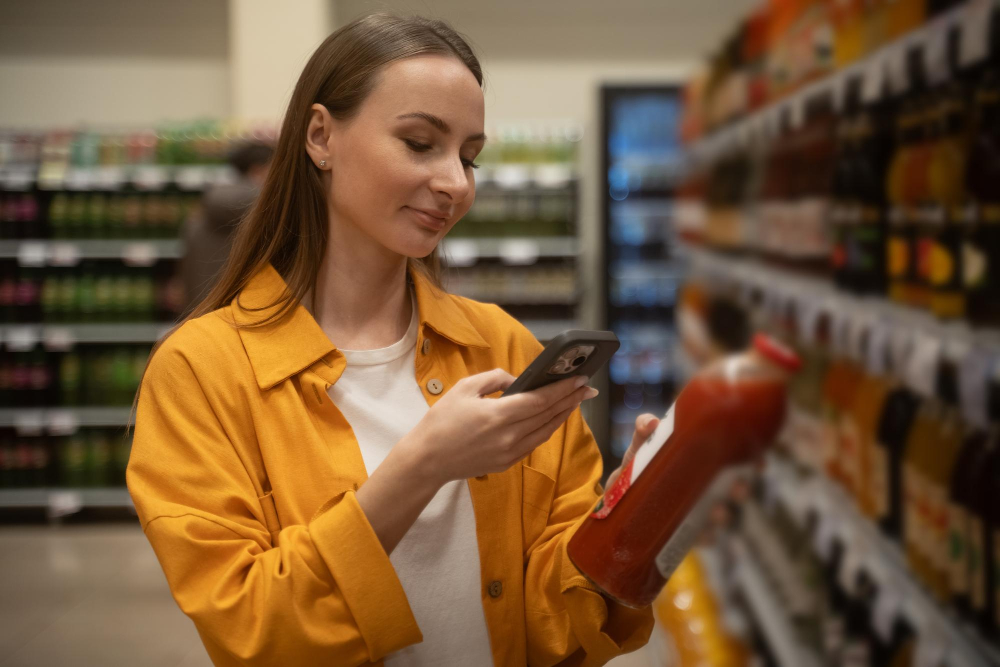A staggering 51 percent of UK adults report having unknowingly purchased out-of-date food from supermarkets. New research reveals that approximately £11.8 billion worth of groceries are disposed of annually, underscoring an urgent need for action.
Recent incidents, such as Asda’s £640,000 fine for selling expired food at two Cardiff locations, reflect the escalating scrutiny on Environmental, Social, and Governance (ESG) reporting. This growing pressure calls for smarter solutions from both retailers and consumers.
On average, a UK adult discards groceries valued at £17.90 each month, totaling £214.27 per year. Notably, almost half of respondents (49 percent) indicated that food spoils before they can consume it. Additionally, one-third (33 percent) forget about what is in their fridge, while 20 percent misjudge their portion sizes.
Three-quarters (75 percent) of adults believe that clearer labelling would significantly reduce food waste. Furthermore, 71 percent assert that supermarkets have a responsibility to tackle this issue more effectively.
Consumers are increasingly demanding responsible action from retailers regarding unsold stock. Seventy-two percent express support for donating food approaching its use-by date to charities, while 69 percent favor discounting near-expiry products. Additionally, 33 percent of UK adults advocate for improved inventory and demand forecasting.
Leading retailers like Tesco are already exploring innovative barcode technologies aimed at preventing the sale of expired items and curbing household waste.
Colin Peacock, Group Strategic Coordinator at ECR Retail Loss, stated: “Exploring how QR codes with embedded date information can be scanned at the retailer’s point of sale – and block the sale of out-of-date products – has been a focus of our research for the last five years. Retailers such as Woolworths and Mercadona have regularly shared updates on their scaled deployments.”
“We are excited about the potential of QR codes not only to prevent expired products being sold but also to improve replenishment and productivity while streamlining product recalls.”
These advanced QR codes, adhering to GS1 standards, offer more information than conventional barcodes. They connect each product to live data about expiration dates, storage instructions, sourcing, and more, thereby enhancing food safety and empowering shoppers to make informed choices.
Anne Godfrey, chief executive of GS1 UK, remarked: “These findings highlight the need for clearer guidance and more solutions to tackle food waste.”
“Recent supermarket fines prove just how critical accurate stock management and clear labelling are.”
“UK retailers must confront the food waste challenge directly and adopt smarter solutions that empower consumers to waste less and make better-informed choices.”
The GS1 UK study further indicates that 66 percent of individuals admit to discarding food due to uncertainty about its safety. Among younger adults aged 18 to 24, this figure escalates to 83 percent, averaging £309 worth of discarded food annually. Those in the 25 to 34 age bracket waste even more, at approximately £409 each year—nearly double the national average.
A significant 28 percent feel guilty about the food they dispose of, while 43 percent consider it a financial waste.
Nearly half (47 percent) of consumers express willingness to use scannable codes to track expiration dates and receive app notifications when products in their fridge near their use-by date. Furthermore, 42 percent would trust a product’s freshness more if they could scan a QR code that provided this information.
Over a third (35 percent) support implementing a legal requirement for all food products to include these codes linking to up-to-date storage and expiry advice.
QR code usage is rapidly gaining traction, especially among younger shoppers; one in three adults have scanned a QR code on food packaging, with this number jumping to two-thirds among those aged 25 to 34.
Anne Godfrey added: “Scanning smart QR codes can help retailers efficiently manage expiration dates, rotate stock, and discount items nearing their best-before dates. This will prevent out-of-date products from being sold, thereby reducing household waste.”
“QR codes powered by GS1 can empower both retailers and consumers to make smarter choices. They hold the potential to provide clear storage tips, leftover recipes, and alerts for items approaching their use-by date.”
GS1 UK is actively collaborating with industry partners to support the transition to GS1-powered QR codes, aiming for widespread adoption across point-of-sale systems by the end of 2027.

